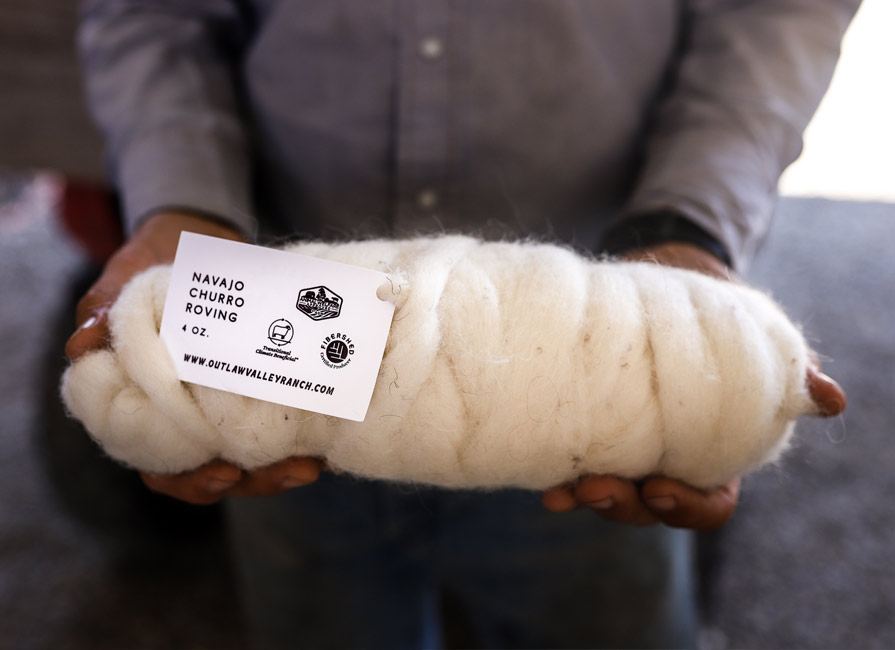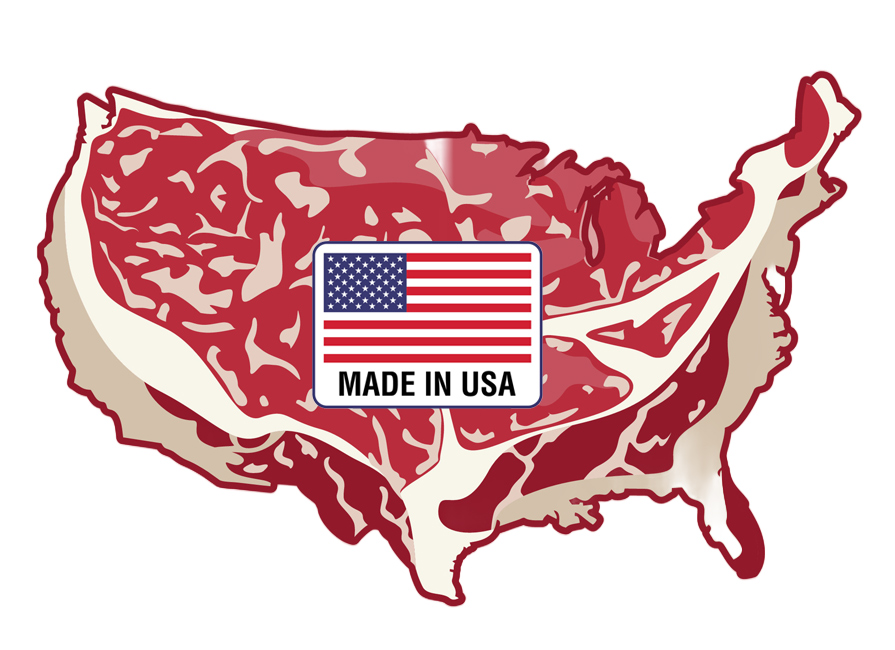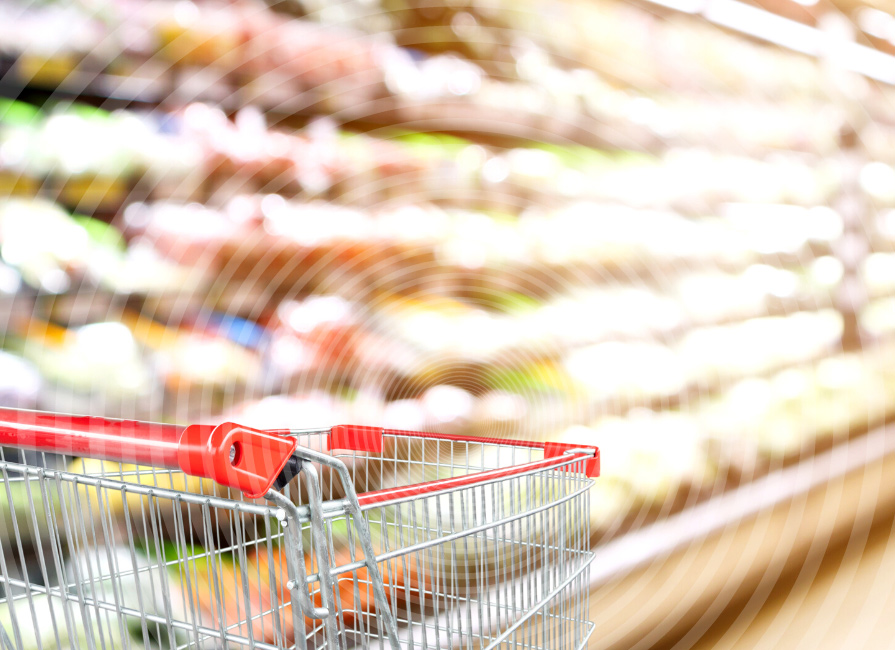Market research shows that today’s consumers are increasingly interested in knowing where their food comes…
New App Shines Spotlight on Bogus Food Labels

So you’ve woken up to the fact that industrial livestock farming is bad for your health, bad for animals, and bad for the planet. You’ve decided to cut back on—or even cut out—the consumption of cheap, industrially farmed meat. Instead, you’re taking positive action and spending your hard-earned money on high-welfare, sustainably produced meat. Or so you might think.
What if I was to tell you the “All Natural” beef you’ve been conscientiously buying, with that image of happy cattle out on pasture, actually came from animals who were confined on a dirt feedlot with tens of thousands of other cattle and routinely fed antibiotics and hormones? Or the carton of “Free Roaming” branded eggs you buy each week comes from chickens who spend their entire lives indoors and never see the light of day—let alone a blade of grass? Or that “Antibiotic Free” pork loin you chose from the menu at your favorite restaurant last night almost certainly came from an intensive indoor pig unit which uses farrowing crates to keep the mother pigs restrained behind bars?
I’ve written before about the insidious rise of misleading food labels, which increasingly use bucolic farm scenery and false health, animal welfare and environmental claims to hide the same old indoor, industrial livestock production systems. As consumer concern about the negative impact of industrial farming on our health and the environment has intensified, it’s infuriating to see the extent to which some food manufacturers and processors will go to make a quick buck or to maintain their market share.
The good news is that help is now at hand: Animal Welfare Approved has launched a new app to help people who want to navigate the bewildering sea of terms and claims made about our food—and understand what they really mean. Available for both iPhone and Android devices, AWA’s free Food Labels Exposed app allows you to browse over 80 common food terms and claims while you are shopping or eating out, with user-friendly icons and factual definitions for each entry. From “Natural” and “Humane” to “Cage Free” and “No Antibiotics,” the Food Labels Exposed app allows you to read food labels with confidence and identify food labels that address the issues you care about most—such as animal welfare, environmental protection, or supporting truly independent farmers.
The launch of the new app is very timely indeed. In a blaze of carefully managed and manicured PR, Tyson Food’s new Farm Check program is just the latest example of a so-called farm audit program that’s been specifically designed to convince consumers they’re buying a high welfare product, when they’re actually paying for the same old industrially farmed meat.
According to Donnie Smith, Tyson’s president and CEO, the new Farm Check program will “personally audit” the treatment of animals at the livestock and poultry farms that supply the company. “Here’s what I want people to know,” Smith says in the press release. “At Tyson, we care enough to check on the farm; and we’re determined to help find better ways to care for and raise healthy animals.”
While we applaud Tyson for at least looking at the farms they’re buying pork from, the problem remains that this new Farm Check program will still allow Tyson’s farmers to confine their pigs indoors in concrete pens, where they are unlikely to ever see sunshine or to be able to root and forage for vegetation. Under the Farm Check program, Tyson’s farmers will continue to use gestation and farrowing crates, which severely restrict the ability of the sow to even turn round, let alone move around and perform natural behaviors. And the pigs managed under the Tyson brand will still have routinely had their tails docked so they can’t bite each other’s tails out of boredom.
Tyson’s Farm Check sounds positive until you realize that this new “farm assurance” program has absolutely nothing to do with stopping—or even changing—any of these inhumane animal practices. Why? Because this kind of industrial farming system is exactly how Tyson is able to produce its pork so cheaply in the first place. Farm Check isn’t about changing the way Tyson works: it’s just a swanky PR stunt, designed to fool consumers into thinking they’re supporting real change, when they’re not. Once you start to look beyond Tyson’s Farm Check PR show, I’m afraid you’ll find the same old intensive production systems and the same old welfare problems that you were trying to avoid in the first place.
Tyson’s Farm Check is also a classic example of one of the many new “farm assurance” programs that have recently sprung up where the organization that is selling you a supposedly enhanced meat product (and which stands to directly benefit from the transaction) is not only in charge of setting the “rules” (however flimsy they might be) for its suppliers, but is also wholly responsible for making sure the suppliers are actually following them. A classic example of a clear conflict of interest, don’t you think?
The newest kid on the block in the farm program arena is the Meyer Natural Foods—a significant supplier of natural and organic beef to supermarkets, restaurants, and consumers. After formerly working with Certified Humane (a credible independent third-party farm certifier), Meyer Natural Foods has obviously decided that it’s a whole lot easier to go it alone and make up its own rules on what constitutes good animal welfare. According to the company website, their new Humanely Handled program is “designed to further strengthen Meyer’s strict standards for raising and producing cattle” and focuses on traceability, cattle housing, environmental protection, disbudding, castration and transportation, and includes “the highest levels of transparency, independence and integrity.” Again, this all sounds great until you start to look behind the scenes.
While Meyer Natural Foods’ claim that a “specified number” of farms will be independently audited each year, the specified number is unspecified. In other words, they’re not going to visit and audit each and every farm, every year. Instead, they’ll almost certainly rely on an “affidavit system,” where the farmers who want to supply Meyer Natural Foods simply sign a declaration form to say that they are (in theory) following the required standards—and that’s it. Speaking of the standards, it might also surprise you to know that cattle raised under the Meyer Natural Foods Humanely Handled program could also be confined on dirt feedlots and fed a high-grain diet for a significant period of their lives, with all the associated health and welfare issues (see page 10 of our report, The Grassfed Primer. Hardly the kind of integrity or high-welfare management you might expect from a program labeled “Humanely Handled.”
But it isn’t just the big players who are causing confusion in the marketplace or potentially misleading the public. As more people wake up to the problems associated with intensive farming, many are turning to their local farmers in the sadly misguided belief that because the meat they buy is “locally” produced, it will also invariably be “humanely raised.” Unfortunately, this isn’t necessarily the case.
In my home state of Oregon, for example, a number of well-known Portland chefs are buying pork from a hog producer, Payne Family Farms, who sell their pork through the trendy Eat Oregon First food distributor. “We are dedicated to raising premium all natural pork and poultry products sustainably, humanely…” reads the Payne Family Farms marketing blurb. Yet the indoor confinement system and the farrowing crates used at Payne Family Farms to produce its pork are about as far from humane and sustainable as you can get.
The problem is that many of the Payne Family Farms’ customers have swallowed this “humane and sustainable” marketing spiel—hook, line and sinker. As a result, several top end chefs and restaurants in Portland—many of whom should really know better—are presenting this indoor, intensively reared pork to their customers as a premium product when it’s actually nothing of the sort. And they’re expecting you, the end consumer, to pay handsomely for it, too.
The fact is that unless a local farm is audited by a credible third-party certifier, such as Animal Welfare Approved, there is no guarantee whatsoever that the meat is from animals raised any more “humanely” than that sold by Tyson or Smithfield or any of the industrial meat processors that currently dominate meat production in the U.S. If you aren’t able to make regular visits to every farm your food dollar touches, and if you really want to have confidence that your restaurant is serving meat from the kind of high welfare, sustainable farms you want to support, you need to look for a credible third-party certification on the label or on the menu. That’s where our free Food Labels Exposed app can help.
Animal Welfare Approved is the only certification that guarantees high-welfare, pasture-based management on an independent family farm. Because of this, we have become the most highly regarded food label for animal welfare and sustainability. We believe that trust between the consumer and the food producer is absolutely vital. This is why we are the industry leader in auditing and certifying family farms that raise their animals sustainably, outdoors on pasture or range, according to the highest welfare standards. In a free market, the freedom of choice ultimately begins with the freedom of information, which is exactly what our new app is designed to provide.
You can download AWA’s free Food Labels Exposed app from Apple’s App Store or from Google Play. And if you happen across any food claims or labels which are not currently covered by the app, please let us know either through the app or send an email to info@AnimalWelfareApproved.org.
Find us on Facebook at http://www.facebook.com/AnimalWelfareApproved.



